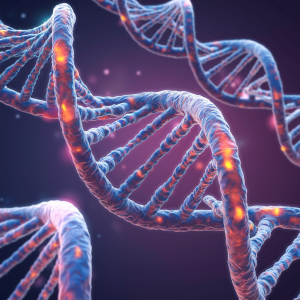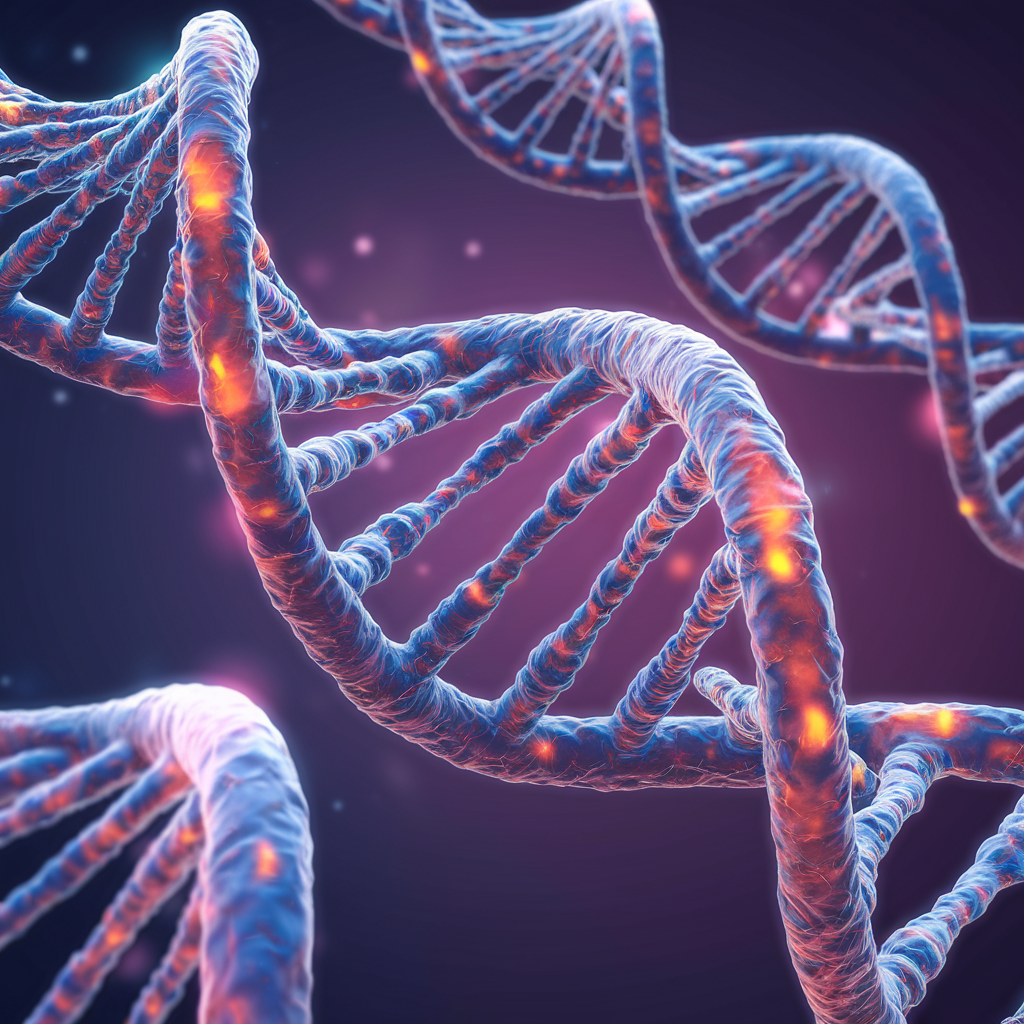Genetic testing is rapidly transforming medicine, providing insights into an individual’s health risks, genetic conditions, and potential responses to treatment. As this technology continues to advance, its impact extends beyond healthcare into the courtroom. Legal cases involving genetic test results are becoming more common, raising important questions about their medico-legal implications. A critical part of these cases is the role of genetics expert witnesses, who help interpret complex genetic data for judges and juries.
In this article, we will explore how genetic testing is influencing legal proceedings and the emerging role of genetics expert witnesses in medico-legal cases.

Understanding Genetic Testing
What is Genetic Testing?
Genetic testing is a medical test that examines an individual’s DNA to identify changes or mutations that could affect health. These tests can offer valuable insights into a person’s genetic makeup, revealing conditions they may be at risk for, whether they carry genes for certain diseases, or how they might respond to medications.
Types of Genetic Tests:
- Diagnostic Testing: Used to confirm or rule out a suspected genetic condition, especially when symptoms are present.
- Predictive Testing: Helps predict the likelihood of developing a genetic condition in the future, even before symptoms appear.
- Carrier Testing: Determines if an individual carries a gene for a genetic disorder that could be passed to offspring.
Methods of Genetic Testing:
- DNA Sequencing: Identifies the specific sequence of nucleotides in a person’s DNA, which can highlight genetic variations.
- Polymerase Chain Reaction (PCR): A method to amplify small segments of DNA for analysis, often used in diagnostic testing.
Why Genetic Testing Matters in Healthcare
Genetic testing plays a vital role in healthcare, offering the potential for more personalized medicine. By understanding an individual’s genetic predispositions, healthcare providers can make more informed decisions about preventive care, treatment plans, and lifestyle modifications.
- Early Detection: Genetic tests can help identify diseases before symptoms develop, allowing for early intervention and better outcomes.
- Personalized Treatment: Information from genetic tests can guide doctors in selecting the most effective treatments, especially in fields like oncology or pharmacogenomics.
- Family Planning: Carrier testing provides valuable information for couples planning to have children, as it can identify the risk of passing on inherited conditions.
Medico-Legal Implications of Genetic Testing
The Legal Significance of Genetic Test Results
As genetic testing becomes more widespread, it has started to play a pivotal role in various legal matters. From medical malpractice cases to inheritance disputes, genetic test results are being used as crucial evidence in the courtroom.
Impact on Medical Malpractice Cases
In medical malpractice cases, genetic testing can either support or challenge claims of negligence. If a healthcare provider fails to order the proper genetic tests, or misinterprets test results, it may lead to incorrect treatment decisions. Genetic evidence can be used to show whether the medical professional followed standard care protocols and whether the genetic information could have influenced the diagnosis or treatment plan.
Use in Paternity and Inheritance Disputes
Genetic testing is a cornerstone in resolving paternity disputes, as DNA testing can definitively confirm biological relationships. Similarly, in inheritance cases, genetic testing can be used to establish familial relationships, especially in cases where there is uncertainty about lineage or inheritance rights.
Privacy and Ethical Concerns
As genetic testing provides highly detailed information about an individual’s health and family history, it raises significant privacy and ethical issues.
Potential Misuse of Genetic Information
One major concern is the potential for genetic information to be misused by employers, insurance companies, or even in legal contexts. For example, an employer might use genetic data to make decisions about hiring or firing, while an insurance company might use it to deny coverage based on genetic predispositions.
Consent and Confidentiality
Another key issue is ensuring that individuals provide informed consent before undergoing genetic testing. This includes understanding how the results will be used and who will have access to the data. Courts have also grappled with whether genetic information should be protected in the same way as other medical data.
Genetic Testing in Personal Injury and Medical Malpractice Cases
How Genetic Testing Can Influence the Outcomes of Personal Injury Lawsuits
In personal injury cases, genetic testing can be an important tool in determining liability or establishing causation. When an individual sustains an injury or is exposed to a harmful substance, genetic testing might reveal whether they are genetically predisposed to a specific condition, or how their body responds to that injury or exposure.
Case Examples Where Genetic Testing Provided Key Evidence
- Toxic Exposure: In cases involving toxic exposure (such as asbestos), genetic testing might show that a person has a genetic vulnerability to the harmful substance, which could strengthen their case.
- Inherited Conditions: If a plaintiff has a pre-existing genetic condition that may worsen after an injury, genetic testing can clarify whether the injury exacerbated the condition or whether it was part of the natural progression of the disease.
Genetic testing helps establish the extent of an injury and whether the defendant’s actions directly caused harm to a person with specific genetic predispositions. This can be critical for calculating damages and assigning responsibility.
Medical Malpractice and Genetic Testing
Medical malpractice cases can also be influenced by genetic testing, particularly when it involves the failure of a medical professional to correctly diagnose or treat a genetic disorder.
Whether Genetic Tests Can Help Determine Negligence or Misdiagnosis
Genetic testing might reveal that a patient had a condition that was either misdiagnosed or not diagnosed at all. If a healthcare provider fails to order the appropriate genetic tests or ignores genetic predispositions, it could lead to a malpractice claim.
For example, if a doctor fails to recommend genetic testing for a patient with a family history of a genetic disorder, the patient may suffer harm that could have been avoided with early intervention. Genetic testing can be used to prove that the doctor’s failure to act was negligent and that proper testing could have led to a different, more favorable outcome for the patient.

The Role of Genetics Expert Witnesses
What is a Genetics Expert Witness?
A genetics expert witness is a professional who provides specialized knowledge and testimony in legal cases involving genetic testing. These experts are typically geneticists, doctors, or researchers with extensive experience in genetics and related fields. Their primary role is to help the court understand complex genetic data and explain its relevance to the case at hand.
Definition and Qualifications of a Genetics Expert Witness
Genetics expert witnesses must have a strong background in the science of genetics. They should hold advanced degrees, such as a PhD in genetics or a medical degree, and have substantial experience working with genetic data. Their qualifications may also include:
- Clinical practice in genetics or a related field.
- Published research in reputable scientific journals.
- Experience providing expert testimony in court.
Importance of Expert Testimony in Legal Proceedings
Expert testimony in genetics is crucial for clarifying the complexities of genetic data. Genetic test results can be difficult for the average person, including judges and juries, to interpret. A genetics expert witness helps translate these scientific findings into understandable language, providing context about how the results relate to the case.
For example, if a case involves a person’s genetic predisposition to a certain disease, the physician expert witness can explain how this genetic factor impacts their health and whether it was relevant to the medical decisions made in the case. This can help establish whether the defendant’s actions were linked to the plaintiff’s condition.
How Genetics Expert Witnesses Contribute to Court Cases
Genetics expert witnesses contribute by:
- Interpreting Genetic Test Results: They explain the meaning and limitations of genetic test results, addressing potential errors in the testing process and helping to assess the accuracy of the results.
- Explaining the Relevance of Genetic Data: They clarify how the genetic information applies to the legal issues at hand, such as determining causation or assessing damages.
- Providing Expert Opinions: Based on their expertise, they can offer professional opinions about how genetic factors might have influenced the case, whether in a medical malpractice situation or a personal injury lawsuit.
Their insights help the court make more informed decisions based on sound scientific evidence, ensuring that justice is served accurately.
Challenges in the Use of Genetic Testing in Court
Scientific Complexity and Accuracy Concerns
One of the main challenges of using genetic testing in court is the scientific complexity involved. Genetic testing is not always straightforward, and interpreting the results requires deep expertise. Inaccuracies in testing, or misinterpretation of results, can complicate legal proceedings.
Common Challenges in Interpreting Genetic Test Results
- False Positives/Negatives: Genetic tests are not always 100% accurate. A false positive might indicate a person has a genetic condition when they do not, while a false negative might fail to identify a condition that is present. These errors can lead to confusion in court.
- Genetic Variability: Some genetic traits or conditions are influenced by environmental factors or interactions with other genes. This complexity can make it challenging to link genetic data directly to a specific cause or event in a legal case.
Legal Challenges in Presenting Genetic Evidence
Even when genetic evidence is sound, there are legal challenges involved in presenting it in court. Judges and lawyers must consider whether the evidence is admissible and whether it will be understood correctly by the jury.
Admissibility of Genetic Evidence in Court
In some jurisdictions, courts have specific rules about what kinds of scientific evidence are allowed. Genetic evidence must meet certain criteria to be considered reliable and relevant. This often requires expert testimony to explain why the evidence is valid.
Cross-Examination of Genetic Expert Witnesses
One challenge in using genetic evidence is the potential for cross-examination of expert witnesses. Defense attorneys may question the qualifications or methods of a genetics expert, challenging their conclusions. Expert witnesses must be prepared to defend their opinions and demonstrate the reliability of their analysis.
The Future of Genetic Testing in Legal Cases
The Evolving Role of Genetics in Legal Disputes
As technology advances, the use of genetic testing in legal cases is expected to expand. With improved accuracy, accessibility, and applications, genetic testing will likely become even more integral to the legal process. This evolution is already happening in various areas of law, such as personal injury, medical malpractice, and even criminal law.
Predictions on How Genetic Testing Will Be Used in Future Legal Cases
- Health and Disability Claims: In the future, genetic testing may play an even larger role in health and disability claims. It could help establish the connection between genetic conditions and the injuries sustained in personal injury cases, making it easier to assess long-term impacts.
- Criminal Law: As forensic genetics becomes more advanced, genetic testing may increasingly be used to solve criminal cases. DNA evidence can already be used to identify suspects or exonerate the wrongfully convicted, but future advancements in genetic testing could offer even greater precision.
- Employment Law: In the future, genetic testing might be used in employment-related cases, especially regarding discrimination. Genetic predispositions to certain conditions could influence hiring or firing decisions, making it crucial to establish clear legal boundaries.
The Increasing Demand for Genetics Expert Witnesses
As the legal implications of genetic testing grow, so too does the demand for qualified genetics expert witnesses. The complexity of genetic data requires professionals who can provide clear and accurate interpretations for the court.
Impact of Technological Advances in Genetic Testing on the Legal Profession
- More Complex Data: As genetic tests become more sophisticated, expert witnesses will need to be even more knowledgeable to interpret complex results.
- Greater Need for Experts in Different Areas: With genetic testing expanding into new areas, such as pharmacogenomics (how genes affect drug responses) and gene therapy, the legal field will need specialists who can speak to these emerging topics.
The need for genetics experts will only increase as the legal system adapts to the growing role of genetic information in decision-making.
Breaking It All Down
Genetic testing is reshaping both medicine and the law. With its ability to provide detailed insights into an individual’s health, genetic testing is becoming a powerful tool in legal cases, from medical malpractice to inheritance disputes. However, its use also brings complex ethical and privacy concerns that must be carefully managed.
The emerging role of genetics expert witnesses is vital to navigating these challenges. These professionals bridge the gap between complicated genetic data and the legal system, ensuring that the right conclusions are drawn in court. As genetic testing continues to evolve, its impact on the legal profession will only grow, making genetics experts an essential part of future legal proceedings.
Understanding the medico-legal implications of genetic testing is crucial for both legal professionals and the public, as it has the potential to significantly influence the outcomes of many cases. The future of genetic testing in the courtroom looks promising, with ongoing advancements likely to continue shaping the way we approach legal matters involving genetic data.
Frequently Asked Questions
What are the legal implications of genetic testing?
Genetic testing can impact legal cases by providing crucial evidence in areas like medical malpractice, personal injury, and inheritance disputes. It can help determine causation, establish medical negligence, or clarify familial relationships in legal matters.
How accurate are genetic tests in legal cases?
While genetic tests are generally accurate, they are not perfect. Issues such as false positives or negatives can occur, and the interpretation of results can be complex. Legal professionals must rely on expert testimony to assess the reliability and relevance of genetic data in court.
Can genetic test results be used in criminal cases?
Yes, genetic test results, particularly DNA evidence, are commonly used in criminal cases. Advances in forensic genetics have made it possible to use DNA to identify suspects or exonerate individuals wrongfully convicted.
How can genetics expert witnesses help in a court case?
Genetics expert witnesses interpret complex genetic data for judges and juries. They provide insights into the relevance of genetic test results, explain scientific findings in understandable terms, and help the court understand the implications of genetic evidence in the case.
Are genetic test results confidential?
Yes, genetic test results are confidential. However, legal cases may require the disclosure of these results. The use of genetic information in court is subject to strict regulations to protect privacy, but ethical concerns about misuse still exist.
What types of cases can genetics expert witnesses be involved in?
Genetics expert witnesses can be involved in a variety of cases, including medical malpractice, personal injury, paternity disputes, inheritance cases, and even criminal law. They provide testimony on the relevance of genetic evidence in each specific context.
What qualifications should a genetics expert witness have?
A genetics expert witness should have advanced education, such as a PhD in genetics or a medical degree, along with experience in clinical practice or research. They must be able to demonstrate a deep understanding of genetics and the ability to clearly explain complex concepts to the court.
What are the privacy concerns related to genetic testing in legal cases?
The primary concern is the potential misuse of genetic information, such as discrimination by employers or insurers. Consent and confidentiality are crucial, and legal frameworks are in place to protect the privacy of individuals undergoing genetic testing.
How can genetic testing help in personal injury cases?
Genetic testing can reveal whether an individual has a genetic predisposition to certain conditions that might be exacerbated by an injury or toxic exposure. This information can help determine the extent of the injury and establish causation in personal injury lawsuits.
Will genetic testing become more common in legal cases in the future?
Yes, as technology advances, the use of genetic testing in legal cases is expected to grow. With more sophisticated tests and a broader understanding of genetics, legal professionals will increasingly rely on genetic evidence in cases ranging from personal injury to criminal law.
Offsite Resources
American Society of Human Genetics – A leading organization in the field of human genetics, offering resources and research on genetic testing.
Genetic Testing Registry – A comprehensive resource for information on genetic tests, including how they’re used in clinical practice and research.
National Human Genome Research Institute – This site provides a wealth of information on genetics, including the ethical, legal, and social implications of genetic research.
U.S. Department of Health & Human Services – Genomics – A government resource focused on the impact of genomics in medicine and public health, including its use in legal settings.
American Medical Association (AMA) – Offers valuable insights into medical ethics and the application of genetic testing in clinical and legal environments.
Centers for Disease Control and Prevention (CDC) – Genomics – The CDC provides in-depth information on how genomics is integrated into public health and the legal implications of genetic testing.
The Genetic Alliance – An advocacy organization focused on improving genetic testing practices, policy, and public understanding.

What’s Next?
If you need assistance understanding the medico-legal implications of genetic testing or are involved in a case that requires expert guidance, we’re here to help. Contact us today at 1-833-465-7463 to speak with a knowledgeable professional who can provide the support and expertise you need to move forward with confidence.

